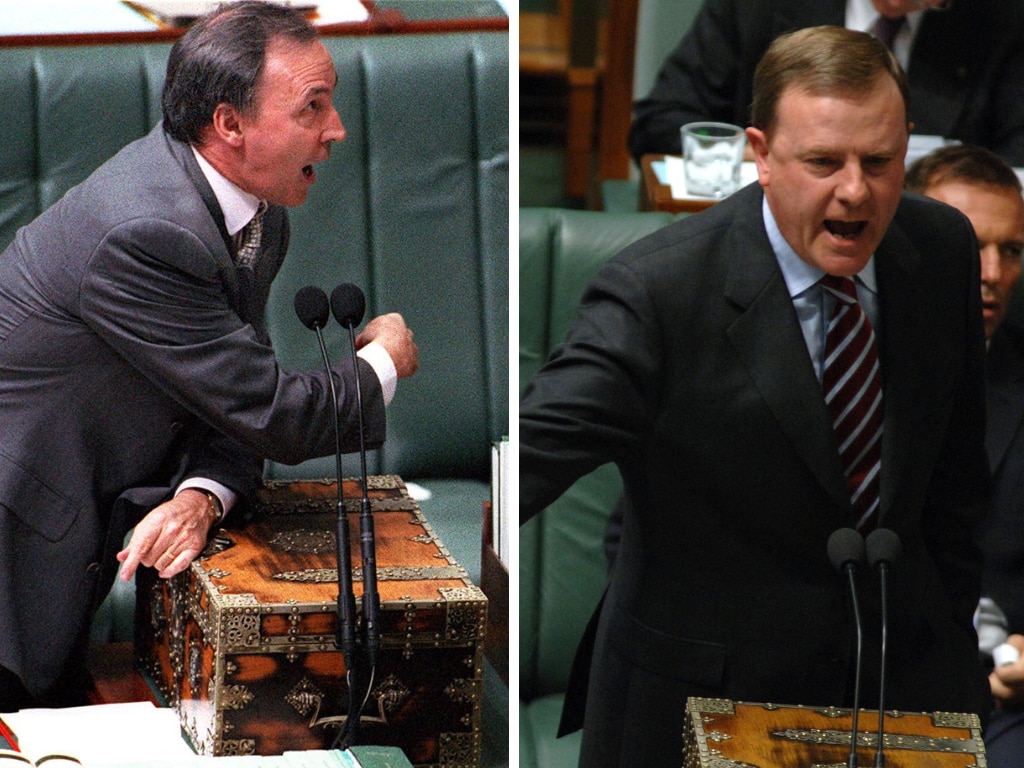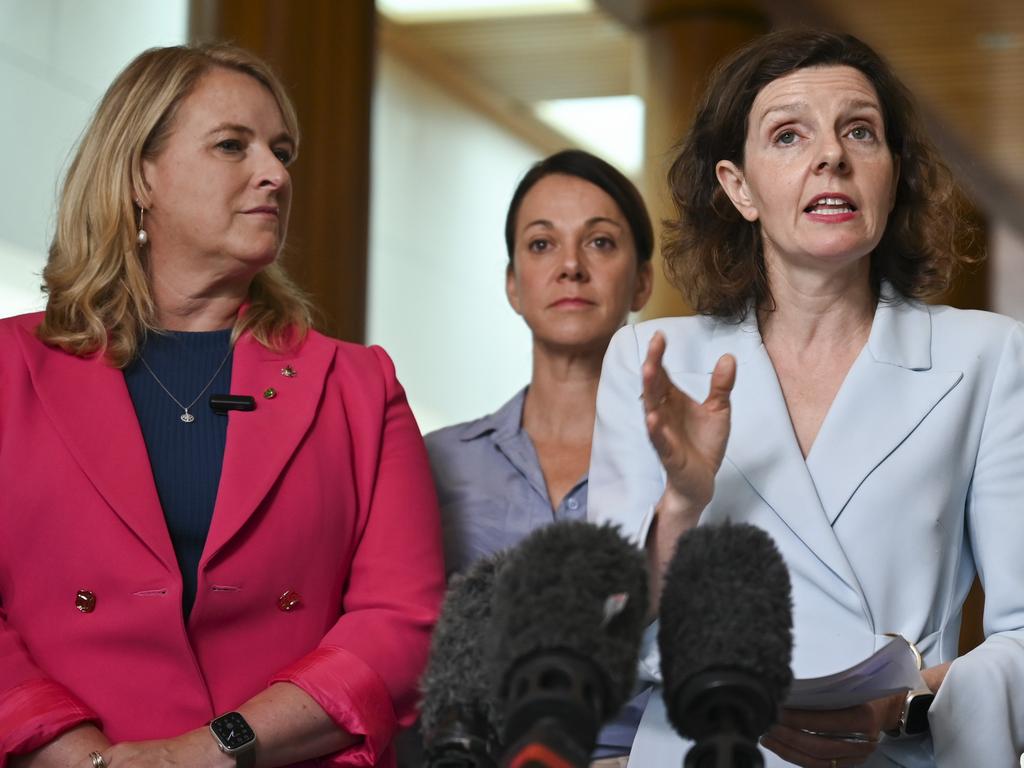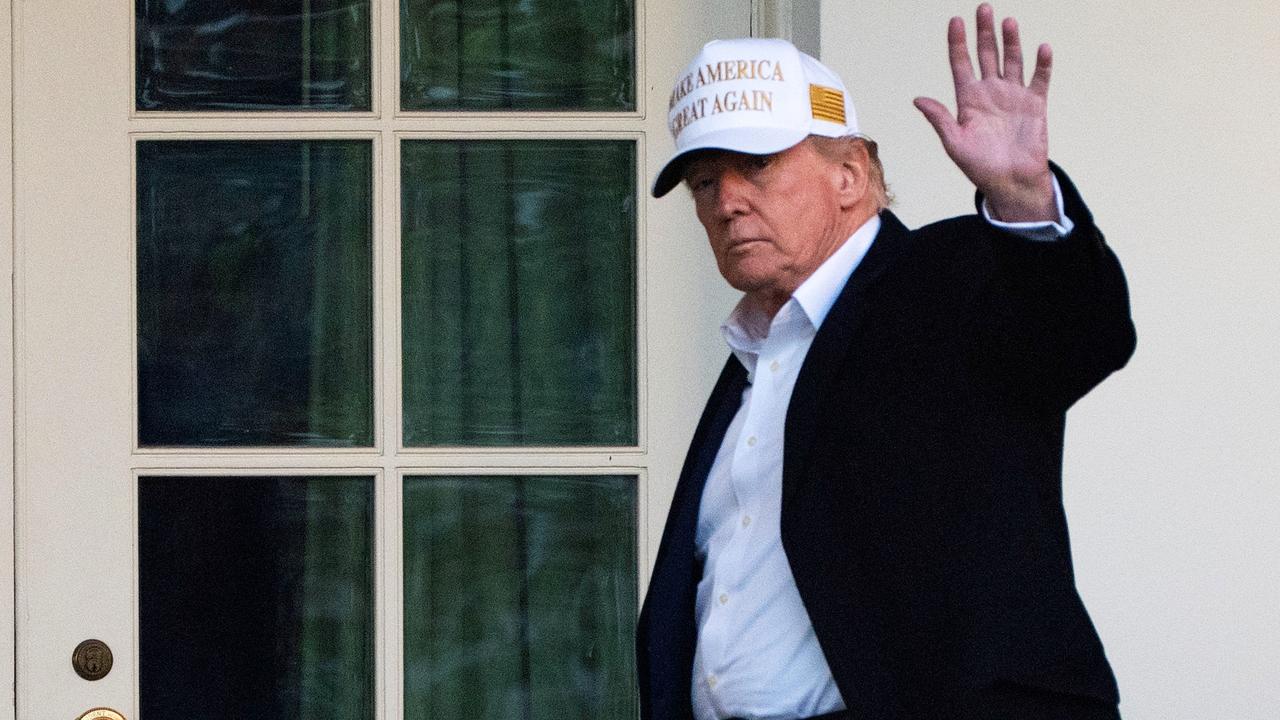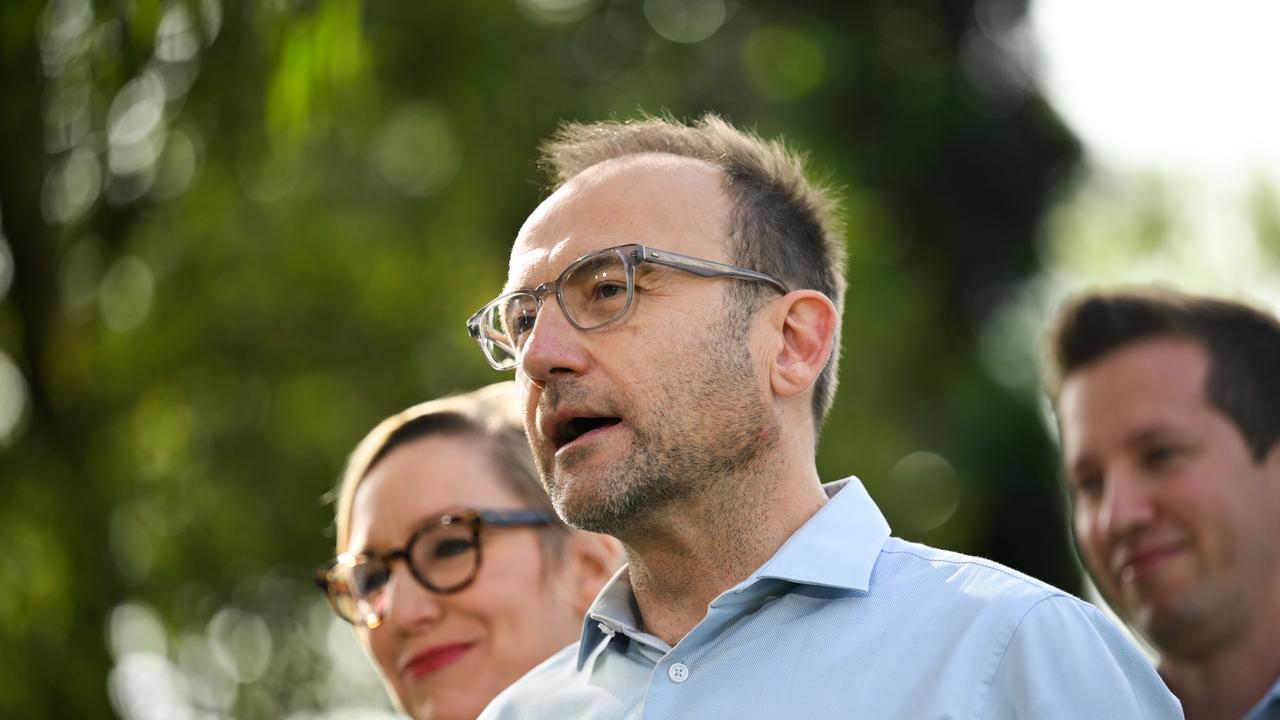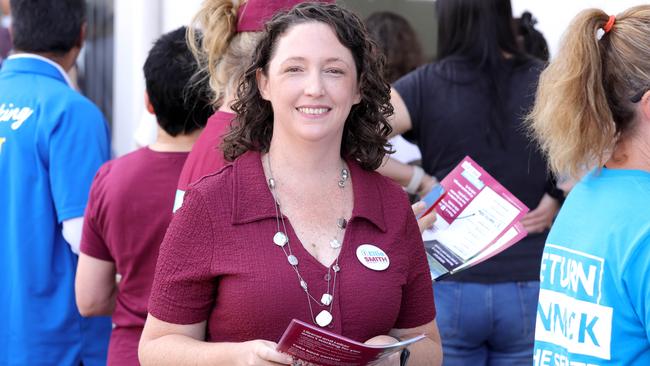
Ellie Smith claims she is challenging Peter Dutton for the seat of Dickson after being “begged” by the local community.
She said she was persuaded to run in December by members of an organisation called Dickson Decides that had been searching for an independent candidate for six months.
“I don’t see myself as a teal,” she told journalists. “Maroon is our colour. Teal is a construct of the media.”
Dickson Decides Pty Ltd is a construct of Eleanor Smith and Christina Cornford, the directors under whose names the company was registered with ASIC on July 30, 2024.
Smith’s campaign is bankrolled in part by Climate 200, the donation-washing outfit led by teal mastermind Simon Holmes a Court.
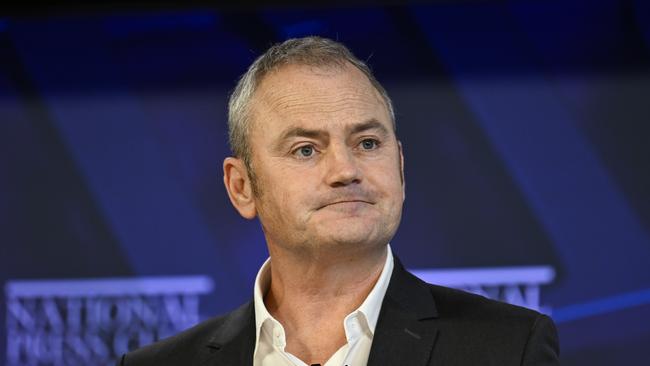
Welcome to Australia’s first fully fledged post-truth election campaign, where hypocrisy and deception are assets, not liabilities.
A claim doesn’t need verification; it just needs to sound plausible, like “truthiness”, a term coined by comedian Stephen Colbert for what seems true to a partisan audience.
Anthony Albanese has adapted to the post-truth environment with ease.
If the facts don’t fit his narrative, he simply makes new ones up. He insists, for example, that Tony Abbott slashed $80bn from health and education in 2014. “The 2014 budget described it as a cut,” the PM told Nine viewers. “$50bn in health and $30bn in education.”
Health spending in 2014-15 rose by 2.7 per cent; education spending grew by 5 per cent. The only cuts worth noting in the 2014 budget papers were a 1.5 per cent reduction in company tax and the axing of the carbon tax.
In a post-truth world, however, evidence is accepted or dismissed not on its merits but on its usefulness to the narrative.
Political priorities are readjusted accordingly.
Hence an isolated example of disrespectful behaviour at an Anzac Day ceremony in Melbourne is quickly inflated into a far-right, neo-Nazi uprising, while a Chinese live-fire exercise off the NSW coast is dismissed as routine.
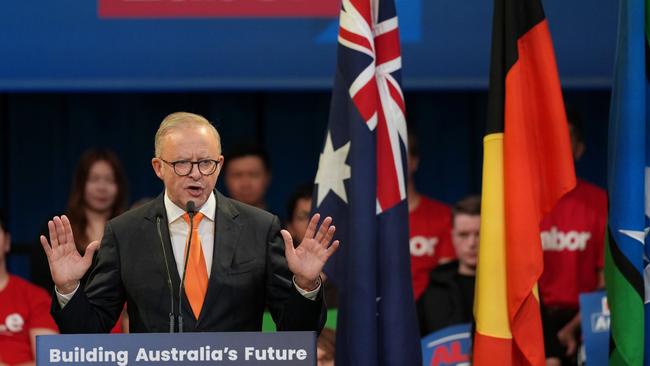
Two accidental surpluses, driven by fluctuating commodity prices, are proclaimed as a fiscal triumph, while challenges from tanking productivity, declining investment and faltering energy production are ignored.
The Prime Minister does not pretend to seek a mandate to address genuine national challenges. Labor’s platform is little more than a list of slogans and electoral bribes.
Medicare, Albanese declared, would be “the beating heart” of his campaign, with a promised 18 million extra bulk-billed GP visits a year. Yet Albanese did not strengthen Medicare in government. GP bulk-billing rates fell from 84 to 77 per cent, forcing patients to hand over their credit cards on about 15 million more occasions.
Far from “stripping away billions” from Medicare rebates, as Albanese claims, the Coalition increased payments for medical services from $25.3bn to $37.6bn over nine years, a 15 per cent rise above inflation.
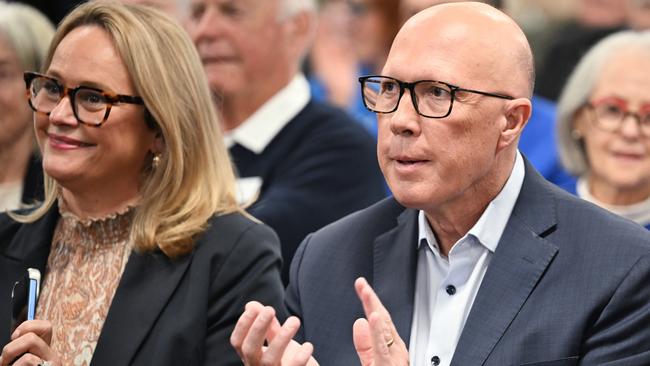
Yet Peter Dutton has struggled to rebut Albanese’s false claims. He has received precious little help from journalists, who show no inclination to challenge Albanese using readily available facts.
The journalist’s role is no longer the dogged pursuit of objective truth, a task that could once be performed by a school leaver armed with practical intelligence and a sharpened pencil.
Today’s journalists carry the scars of misspent years at university writing essays on the role of language and discourse in constructing meaning and power. They are no longer members of Edmund Burke’s fourth estate, charged with holding authorities to account. They are the fifth estate, whose job is to promote social change and create a more just and equitable world.
Together these postmodern forces in politics and journalism mark a profound shift. The old contest of policies and ideas has given way to a “contest of narratives”.
Spin and emotional appeals are nothing new. Political strategists have recognised since the 1990s that storytelling, image and repetition can outweigh policy detail come election time.
However, this election is exceptional for the near-eclipse of objective truth by tribal logic and activist framing. Complex problems are reduced to moral absolutes. Voters are presented with a choice between righteousness and complicity; emotional urgency replaces rational persuasion.
In 21st century politics, truth is secondary to group solidarity. If a statement advances “our side” and harms “theirs”, it is accepted without scrutiny.
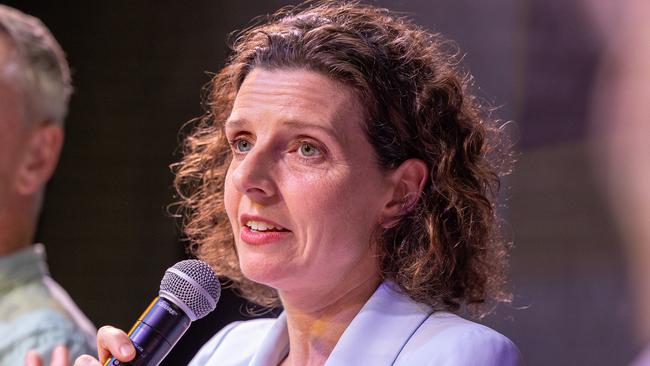
Opponents are not merely wrong but immoral or illegitimate. Alarming reports of intimidation and violence at election stations should come as no surprise. When elections are framed as battles between good and evil, temperatures are bound to run hot.
The teal movement is a post-truth creation, built on a foundation of lies. It is anything but the loose alignment of grassroots-led community independents it pretends to be. It is an anti-democratic force, hostage to the vested interests on which it depends.
Teal MP Allegra Spender claimed in her maiden speech: “I am here because my community, Wentworth, sent me here to represent their values in parliament.”
Yet she was preselected by Daniel and Lyndell Droga, major players in a group called Wentworth Independent and long-time supporters of GetUp, which thanked the couple for their support in 2010.
They were assisted by Blair Palese, a climate activist, Israel critic, and co-founder of 350.org Australia. The extent to which an astroturf movement like Wentworth Independent represents Wentworth’s true community values is debatable.
The teals have turned hypocrisy from vice to virtue. They demand greater transparency and an end to moneyed influence in politics, yet rail against legislation to cap electoral spending. They allege dark conspiracies about fossil fuel companies, but they fail to acknowledge that the teal movement is effectively the political wing of the renewable energy industry.
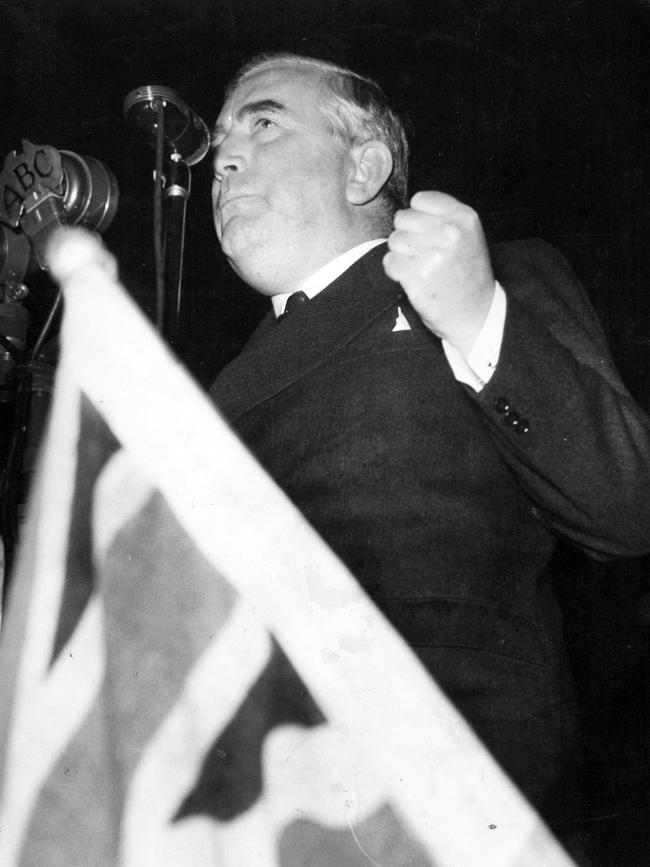
The public’s tolerance for political fakery will be tested this weekend. On its record alone, Labor would have no hope of re-election. Yet the dollar figure most discussed in this campaign is not the $275 a year Albanese hasn’t taken off our annual electricity bills, or the cost of his renewables-only energy plan, the modelling for which was ditched after proving unreliable.
Instead, the campaign’s most quoted figure is the $600bn fantasy used to discredit the Coalition’s nuclear plan. The actual cost will be a fraction of that, invested over decades, not years, and as capital expenditure, not deducted from recurrent budgets for health or education any more than road building would be.
We can be sure the Liberal Party’s founder, Robert Menzies, would’ve been aghast at this style of politics.
“The business of political warfare is not to destroy your opponent, but to defeat him,” he said in his 1958 speech, The Art of Politics.
He was writing at a time when whatever their differences, politicians could at least agree on the basic facts.
On Saturday, we will find out if such noble principles still hold.



